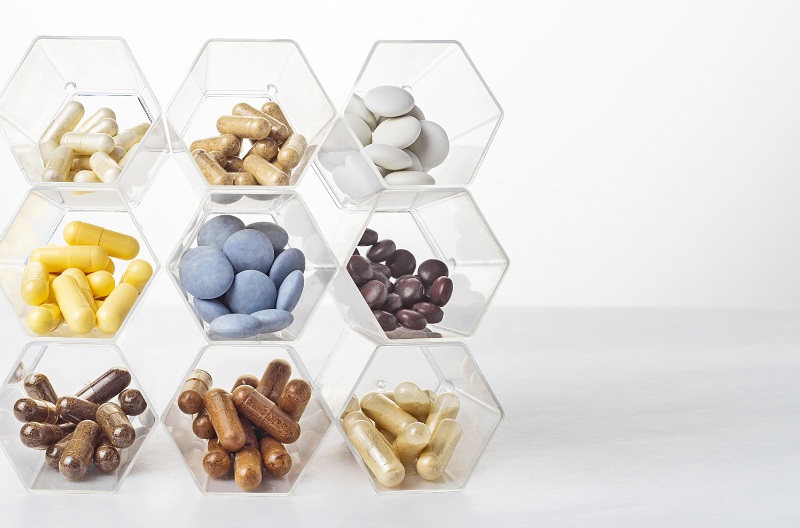We all know that we need to eat a balanced diet in order to stay healthy, but sometimes it can be hard to know which foods contain the nutrients our bodies need. This is where vitamins and supplements come in. Vitamins are essential nutrients that our bodies require in small amounts to function properly, while supplements are products that contain extra vitamins and minerals, usually in larger amounts than what is found in food. So, while both vitamins and supplements can help us stay healthy, they are not the same thing.
In this article, we will take a closer look at what is the difference between vitamins and supplements, and how each can be beneficial to our health.
What are vitamins?

Vitamins are organic substances that our bodies need in small amounts to function properly. There are 13 essential vitamins, which include Vitamins A, C, D, E, K, and the B vitamins (thiamine, riboflavin, niacin, pantothenic acid, biotin, vitamin B6, vitamin B12, and folate). These vitamins can be found in a variety of foods, with each type of vitamin playing a different role in maintaining our health. For example, Vitamin A is important for vision and immunity, while Vitamin C helps to heal wounds and protect against infection.
While we can get most of the vitamins we need from eating a healthy diet that includes a variety of fruits, vegetables, whole grains, and lean proteins, some people may also need to take vitamin supplements to ensure they are getting enough of these important nutrients. This is especially true for people with certain medical conditions or who have trouble absorbing vitamins from food.
What do you mean by supplements?

Supplements are products that contain extra vitamins and minerals, usually in larger amounts than what is found in food. People often take supplements to make sure they are getting enough essential nutrients, especially if they have a medical condition or are not able to get all the nutrients they need from their diet.
There are many different types of supplements available, including multivitamins, individual vitamins and minerals, herbs, and other plant-based extracts. Some supplements are taken orally in pill form, while others are applied to the skin or injected.
Why do you need supplements?

You may need supplements if you have a medical condition that makes it hard to absorb vitamins from food, or if you are not able to get all the nutrients you need from your diet. For example, people with Crohn’s disease or other digestive disorders may have trouble absorbing enough Vitamin D and calcium from food, so they may need to take supplements.
🤰🏻Pregnant women and older adults are also at increased risk for vitamin and mineral deficiencies, so they may need to take supplements to ensure they are getting enough of these important nutrients.
With supplements, it is important to only take the recommended amount, as taking too much of certain vitamins and minerals can be harmful. For example, taking large amounts of Vitamin A can cause liver damage, while too much Vitamin D can lead to kidney problems. It is always best to speak with a doctor or registered dietitian before starting any supplement regimen.
What is the difference between vitamins and supplements?
While vitamins and supplements are often used interchangeably, there are a big difference between the two. Here are a few:
- Vitamins are essential nutrients that our bodies need in small amounts to function properly, while supplements are products that contain extra vitamins and minerals, usually in larger amounts than what is found in food. While both can help us stay healthy, they are not the same thing.
- Vitamins are found naturally in a variety of foods, while supplements are man-made products that often come in pill form. Supplements may also contain other ingredients, such as herbs or plant extracts, which can have different effects on the body.
- Well, vitamins are just that, Vitamins like Vitamin A, B, C, etc… But supplements do not include just vitamins. They are of various types including dietary minerals, fatty acids, proteins, vitamins, etc…
- Vitamins act as catalysts in our body, without which various biochemical reactions will not take place. On the other hand, supplements help to fill up the deficiencies caused due to lack of vitamins or any other essential nutrients in our body.
💡 The real distinction between vitamins and supplements: A supplement is any product that adds nutritional value to your diet or improves your health. Supplements include vitamins. Minerals, herbs, and nutrients such as fiber are examples of supplements.
Are vitamins classed as supplements?

While vitamins are not classed as supplements, they are often taken in supplement form. This is because vitamins are essential nutrients that the body needs in order to function properly. Without enough vitamins, people can develop health problems. Taking vitamin supplements ensures that people get the necessary vitamins and minerals for good health.
So, the answer to the question, ‘are vitamins classed as supplements?’ is that you cannot classify vitamins under supplements. There are supplements that contain one or more vitamins, but a vitamin itself is not a supplement. It is an essential nutrient that the body needs. You can find vitamins in many different foods, or you can take them as supplements. However, taking too many vitamins in the form of supplements can be harmful, so it is best to speak with a doctor before starting any supplement regimen.
💡 What is the most popular sports supplement?
Creatine monohydrate is one of the most well-known sports nutrition supplements available today. It is the most popular workout supplement of all time, with more published human studies proving its safety and efficacy than any other supplement in history.
What is better vitamins or supplements?

Understanding which is better, vitamins or supplements is difficult. It depends on a person’s individual needs. Some people may need to take vitamin supplements because they are not able to get all the nutrients they need from their diet. Others may be able to get all the nutrients they need from their diet and therefore don’t need to take supplements. Speak with a doctor or registered dietitian to find out what is best for you.
In general, it is always best to try and get the nutrients you need from food first. This is because food contains other important nutrients, such as fibre, that you cannot get from supplements.
However, there are some situations where taking a supplement may be necessary. Here are a few of such situations.
- Pregnancy – Women who are pregnant or planning to become pregnant may need to take certain supplements, such as folic acid and iron. This helps to ensure a healthy pregnancy.
- Vegetarians and vegans – People who do not eat meat or animal products may need to take supplements to get enough iron, vitamin B12, and calcium.
- People with certain medical conditions – People with Crohn’s disease or celiac disease may need to take vitamin supplements because their bodies are not able to absorb all the nutrients from food.
- Breastfeeding – Women who are breastfeeding may need to take certain supplements, such as vitamin D to ensure their baby is getting all the nutrients they need.
- Kids with nutritional deficiencies – Children who are not getting enough nutrients from their diet may need to take supplements.
As you can see, whether or not you need to take vitamins or supplements depends on your individual needs. If you think you may need to take a supplement, speak with a doctor or registered dietitian before starting any supplement regimen.
This article by Better Health Channel can give you a better understanding of vitamins and mineral supplements
To conclude
It is important to get the nutrients you need from food whenever possible, but there are some situations where taking a vitamin or mineral supplement may be necessary. So, it is good to understand what is the difference between vitamins and supplements and what they can do for you. Whether you take vitamins through food or supplements, just make sure that you are doing so under the supervision of a doctor or registered dietitian.
Are you having a hard time organizing your vitamins and supplements? Learn by reading How To Organize Vitamins And Supplements.

